Prophet Muhammad's (ﷺ) Lessons for Peaceful Conflict Resolution
Exploring Prophet Muhammad's (ﷺ) insights on the battleground takes us beyond history, into timeless guidance for today's world marked by conflicts and strife. In recognizing the Prophet's (ﷺ) role model, the Qur'an states: "Indeed, in the Messenger of Allah, you have an excellent example for whoever has hope in Allah and the Last Day, and remembers Allah often."[1] These teachings carry weight on the battlefield, providing valuable insights for navigating the complexities of warfare in our present and future. The lessons from the Prophet's (ﷺ) life, applicable to the challenges of today, extend a bridge between the past and the struggles we face, offering a thoughtful perspective on the dynamics of conflict and the pursuit of peace.
Why is it Necessary?
This virtue of the best human ideal, Prophet Muhammad (ﷺ), should be explored, known, taught and spread as the need of the hour, where conflicts are increasing all over the world, including the current Ukraine-Russia and Palestine-Israel wars. Policy makers, commanders, warfighters and other leaders should know this in particular. Inclusively, non-combatant civilians also should understand these warfare teachings of the Prophet (ﷺ) so that they are not deprived of their due rights. Ultimately, if all are pragmatically observers of this universal message, there will be no more fighting on earth. The world will be blessed with peace and prosperity. As world famous Irish playwright and critic George Bernad Shaw (d. 1950 CE) once stated, “To them Muhammad was an anti-Christ. I have studied him, the wonderful man, and in my opinion far from being called an anti-Christ he must be called the savior of humanity. I believe that if a man like him were to assume the dictatorship of the modern world he would succeed in solving the problems in (a) way that would bring it the much-needed peace and happiness.”[2]
A Prelude
Before proceeding, it is inevitable to clarify that Islam is not war-eager or fight-thirsty, since the literal meaning of Islam is also based on ‘peace’ and ‘submission’ (Salām) which is indicative of the overall peaceful project.[3] At the same time, Prophet Muhammad (ﷺ) was sent as ‘mercy for the whole world’.[4] Moreover, in the life chronology of the Prophet (ﷺ), war does not exist, but rather it changes into a new entity, method and terminology with Jihad in general form and Sarāya and Gazwa in specific forms, where the latter is specified with the participation of the Prophet himself (ﷺ). This epistemological change was necessary as all the wars, whether purified as ‘holy war’ as in Judaism and Christianity, from the past to the present are full of blood and brutality where human dignity has no place vis-a-versa Islamic Jihad.[5]
Its definition is a broad one associated with an ethical, holistic and realistic approach. Jihad literally means ‘struggle’ pertaining to all levels of life - spiritual and physical. However, in recent times, anti-Islamic motives have been using the term as a trap-strategy. Their Islamophobic accusations of terrorism, radicalism and extremism are meant to target and dehumanize millions of innocent Muslims around the world.
Words Before Sword
Whatsoever, even in the field of fighting, Islam has given considerable emphasis to human rights, ethical values and natural justice. So first of all, Islam always seeks an alternative to it through dialogue and treaty, so that the sword has no means and utility. Allah says in the Holy Qur'an: “If the enemy is inclined towards peace, make peace with them. And put your trust in Allah. Indeed, He is the All-Hearing, All-Knowing.”[6]
Taqwā: The First Battle Dress
However, if the necessity comes, then surely these Allah-given Prophet-preached rules teach the most effective means of eliminating all forms of violence and bloodshed. The Allah-consciousness or Taqwā in the heart is the first necessity so that no transgression occurs in anger, hatred, violence, passion and selfishness. This is why the world teacher Prophet Muhammad (ﷺ) has repeatedly reminded his companions of these things. On the authority of Jami’ at-Tirmidhi of Imam Muhammad bin Isa at-Tirmidhi, Sulaiman bin Buraidah narrated from his father who said: “When the Messenger of Allah (ﷺ) sent a commander of an army, he would exhort him concerning himself to have Taqwā of Allah, and he would exhort him to be good to those who are with him among the Muslims.”[7]
Few More Values
In the same hadith, similar instructions of the Prophet (ﷺ) are described, “Fight in the Name of Allah, in the cause of Allah. Fight those who disbelieve in Allah, and do not steal from the spoils of war or be treacherous, nor mutilate, and do not kill a child.”[8]
In a hadith of Sahih Bukhari, narrated on the authority of Abdullah Ibn Yazid Ansari, “The Prophet forbade robbery and also forbade mutilation (or maiming) of bodies.”[9] Similar injunctions have been given regarding opponents and clerics. Even on the battlefield, destruction of animals, trees, wealth, etc. can’t be followed. Prophetic ideals also ensure the protection of asylum seekers and fair treatment of detainees.
Concluding Remarks
Many experts and scholars have calculated the battle statistics in the life of prophet Muhammad (ﷺ). This is another marvel compared to the horrors of war today. A similar statistic is that a total of 80 military campaigns took place during the Prophet’s (ﷺ) lifetime. It resulted in a total of 1018 casualties out of which 259 were Muslims and 759 were opponents which is negligible compared to the present day where the total death toll in World War I alone was around 2 crores.[10] In the recent Israel-Palestine war, until now more than 9,500 Palestinians were killed by ruthless Israeli offensive strikes regardless of any international law whereas the majority of them are vulnerable sections including women and children.[11] It also shows the incompetency of so-called worldwide organizations and their ineffective conventions.[12]
From another point of view, the Prophet’s (ﷺ) participation in these battles shows his readiness and bravery for the Ummah and the Truth. At the same time, it also gives a realistic picture of what a commander and his men would look like on the battlefield. The Prophet (ﷺ) is the complete ideal of complete humanity - let it not become partial.
Endnotes
[1] Qur’an, Surah al-Ahzab (33:21)
[2] “What They Said About the Prophet (pbuh).” Manitoba Islamic Association, https://www.miaonline.org/what-they-said-about-the-prophet-pbuh-2/. Accessed 4 November 2023.
[3] “Islam: Submission And Peace At The Heart Of The Faith.” Racial and Religious Harmony Circles, 17 May 2021.
[4] Qur’an, Surah al-Anbiya (21:107)
[5] Barlas, Asma. “Jihad, Holy War, and Terrorism: The Politics of Conflation and Denial.” American Journal of Islamic Social Sciences, vol. 20, 2003.
[6] Qur’an, Surah al-Anfal (8:61)
[7] at-Tirmidhi, Muhammad Ibn ‘Elsa. Jami Al Tirmidhi. Vol. 3, Darussalam, 2007. (Hadith number 1617, P. 376. Translated by Abu Khaliyl)
[8] Ibid.
[9] al-Bukhari, Muhammed Ibn Ismaiel. Sahih Al-Bukhari. vol. 3, Riyadh, Darussalam, 1997. (Hadith number 2474, P. 380. Translated by Muhammad Muhsin Khan)
[10] Khan, Maulana Wahiduddin. Muhammad: A Prophet for All Humanity. Goodword Books, 2001.
[11] Rowlands, Lyndal. “Israel-Hamas war live: Heavy Israeli bombing pounds northern Gaza | Gaza News.” Al Jazeera, 5 November 2023.
[12] Bhattacherjee, Kallol. “Is the United Nations toothless in ending wars?” The Hindu, 2 November 2023.
About the author
Md Sohel Mondal is from Jharkhand. He is a PG Scholar at Department of Civilizational Studies, Darul Huda Islamic University, Kerala. The author regularly writes in English and Bengali on a range of topics focusing on Islam and current affairs. His recent book is ‘15 Characteristics of the Prophet Muhammad’. Email: mdsohelmondal60@gmail.com
Disclaimer
The views expressed in this article are the author’s own and do not necessarily mirror Islamonweb’s editorial stance.

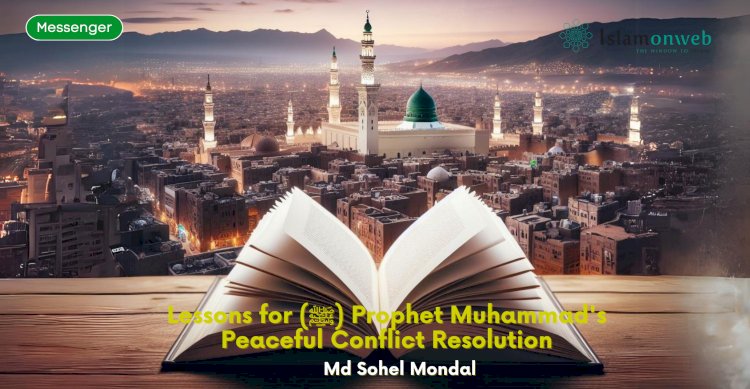


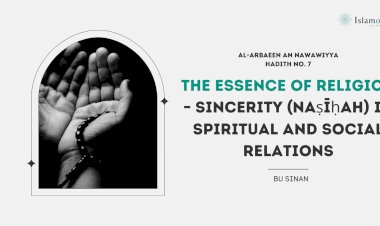
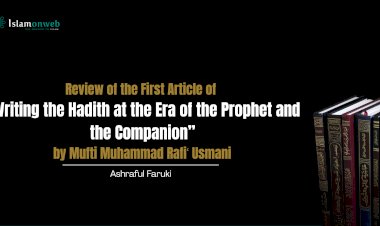
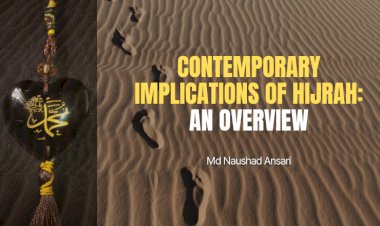
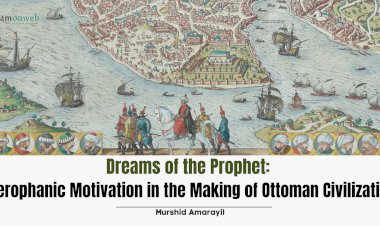
















Leave A Comment